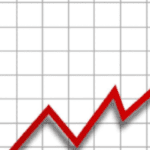The Dow Jones Industrial Average (DJIA), also known as the Dow, is a stock market index that tracks the performance of 30 large publicly traded companies in the United States. The index was created in 1896 by Charles Dow and has been widely followed ever since as a measure of the stock market’s overall health.
The DJIA is calculated by summing the prices of the stocks in the index and dividing by a divisor, which is adjusted to account for stock splits and other corporate actions. The 30 companies in the DJIA are selected based on their market capitalization, liquidity, and representation of various industries, including finance, technology, healthcare, consumer goods, and energy. Some of the well-known companies included in the DJIA are Apple, Coca-Cola, Johnson & Johnson, and Goldman Sachs.
The DJIA is widely followed by investors, financial analysts, and the general public as an indicator of the U.S. stock market and economy. It is updated in real-time throughout the trading day and is reported in financial media. The performance of the DJIA is often used as a benchmark for the overall stock market and for individual portfolios.
However, it’s important to note that the DJIA is a price-weighted index, meaning that the companies with higher stock prices have a greater influence on the index’s performance. This can result in the index being biased towards larger, more established companies, and may not accurately reflect the performance of smaller or more innovative companies.
The DJIA has experienced many significant events throughout its history, including stock market crashes, bull markets, and periods of economic growth and recession. Despite its ups and downs, the DJIA has historically shown a long-term upward trend, reflecting the overall growth of the U.S. economy.
In conclusion, the Dow Jones Industrial Average is a widely followed stock market index that tracks the performance of 30 large publicly traded companies in the United States. It is considered to be a barometer of the overall health of the U.S. stock market and economy and is updated in real-time throughout the trading day. Although the DJIA has its limitations as a benchmark, it remains a valuable tool for tracking the performance of the stock market and for making investment decisions.
















































































Who is Sarah Huckabee Sanders?
vaibhav washniker